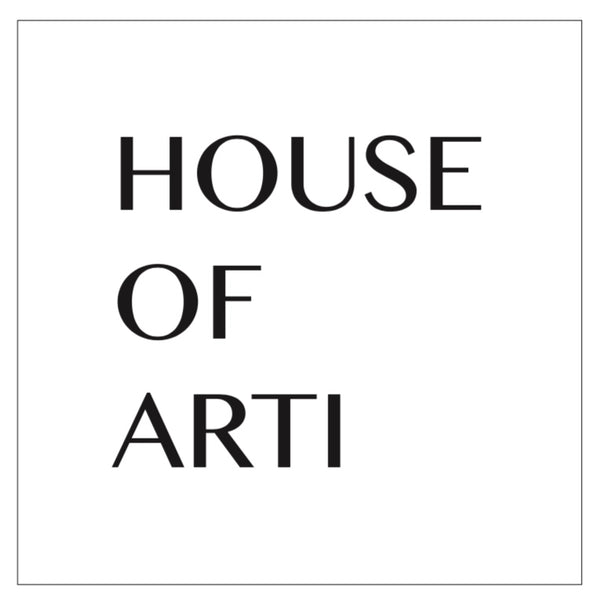
Why Are Shorter Women Belittled in the Workplace: Paid Less, Promoted Less, Respected Less
Share
“I’m 50 years old and still being called ‘cute’ in the workplace.” It’s not just frustrating—it’s demeaning. For many shorter women, height bias in the workplace is a harsh reality. This bias doesn’t just affect how they are perceived; it affects their earnings, career growth, and overall treatment. Research published in the Journal of Applied Psychology reveals that each inch above average height could earn you an additional $789 per year. Think about that for a moment. Over the span of a 30-year career, a woman who is six feet tall could earn almost $166,000 more than someone who stands at five-foot-five.
This is more than just a numbers game. It’s a question of respect, authority, and opportunity. Shorter women, in particular, are often underestimated and passed over for promotions, regardless of their skills and experience. We’re here to break down exactly why this happens, how much it’s costing women in the workplace, and most importantly—what you can do about it.
In this in-depth article, we’ll explore the psychological factors behind height bias, share real stories from women who have experienced workplace discrimination due to their height, and provide actionable advice to overcome these challenges.
Let’s get into it.
Research and Findings: The Height Bias in the Workplace
Why Are Shorter Women Belittled in the Workplace?
Height plays a surprisingly influential role in how individuals are perceived, especially in professional settings. Taller individuals are often seen as more authoritative, confident, and capable. Shorter women, on the other hand, face a range of stereotypes and biases that limit their workplace opportunities. Here are five key psychological and social factors that contribute to the belittling of shorter women in the workplace:
1. Perceived Lack of Authority
Shorter women are often viewed as less authoritative or commanding. In many professional settings, leadership is associated with height, and taller individuals are seen as more “leader-like.” As a result, shorter women may struggle to be taken seriously, especially in male-dominated fields.
One woman shared, “I worked in the medical field for 12 years. I cannot tell you how many times doctors treated me like a child or patients asked for someone else because I looked too young to trust.” This lack of perceived authority can undermine a shorter woman’s confidence and professional standing.
2. Stereotypes of Femininity and Traditional Roles
Society often associates shorter women with more traditionally feminine roles, such as homemaking or caregiving. This stereotype can result in shorter women being viewed as less ambitious or career-driven, further limiting their opportunities for advancement. In contrast, taller women are more likely to be seen as “strong” and capable of handling high-stress roles in management or leadership.
One respondent said, “I’ve had a male boss tell me I needed to wear higher heels if I wanted to get ahead.” This comment underscores the pressure that shorter women face to conform to a specific image to gain respect and recognition in the workplace.
3. Overlooked for Leadership Positions
Height bias can be particularly damaging when it comes to leadership roles. Studies show that taller people are more likely to be promoted to management positions, as height is subconsciously linked to power and dominance. This bias leads to shorter women being passed over for leadership opportunities, even when they are equally or more qualified than their taller colleagues.
As one working professional described, “I get overlooked and passed up on opportunities due to my height, regardless of my talent, confidence, and experience. It’s not just about how tall you are; it’s about how tall people think you should be to lead.”
4. Diminished Social Confidence
The bias against shorter women can also take a toll on their self-esteem and social confidence. This lack of confidence can then feed into the perception that shorter women are not capable of handling demanding or high-level positions. In a professional environment, confidence often dictates how others perceive your capabilities. The constant belittling and underestimation can make it harder for shorter women to assert themselves.“As a person who’s 5 feet tall and has a baby face, I face the same issue! People often overlook my abilities and skills as an SMM until I put my foot down.”
5. Age and Height Discrimination
Height bias often intersects with age discrimination, especially for women over 40. Shorter women are frequently infantilised, and treated as if they are much younger than they are, which can result in a lack of respect from colleagues and superiors alike. This bias only becomes more pronounced as women age, creating additional barriers to career advancement. “During my law school moot court competition, a judge told me ‘you should have worn heels.’ I’m 5’2”, and even in law, my height became an issue,” shared another woman. These experiences highlight the intersection of multiple biases that shorter women must navigate in their careers.
How Much Does It Cost to Be Short in the Workplace?
Height bias doesn’t just impact how women are treated—it directly affects their earnings and career progression. Here are five ways being short can cost you in the workplace:
1. Lower Starting Salaries
Research has shown that taller individuals often start with higher salaries, and this initial gap can widen over time. Employers may subconsciously associate height with competence or leadership potential, leading to shorter women being offered lower salaries right from the start. “It’s not easy for us, but we shouldn’t be treated differently just because of our stature,” shared a woman who left her job due to persistent height discrimination. The financial impact of these biases can be long-lasting, affecting salary growth over the course of a career.
2. Fewer Promotions
Height bias also extends to promotions. Shorter women may be overlooked for leadership roles, not because they lack the qualifications, but because they don’t “look” the part. Promotions are often based on subjective perceptions, and height plays a significant role in those perceptions. “I’ve been compared to a child at every job,” shared one respondent. This infantilisation can prevent shorter women from being seen as serious candidates for promotion, limiting their career growth.
3. Reduced Earning Potential
The Journal of Applied Psychology study found that each additional inch above average height is worth $789 more in annual earnings. Over a 30-year career, that can amount to a significant wage gap. Shorter women often have to work harder to prove their worth, but even then, they may still earn less than their taller counterparts. “I had to work twice as hard as my taller colleagues, but I welcomed the challenge,” said a 50-year-old runway model who faced height bias throughout her career. Despite her efforts, the financial disparity remained.
4. Less Visibility in High-Stakes Meetings
In many corporate environments, visibility is key to career advancement. Taller individuals are more likely to be noticed in meetings and other high-stakes environments, while shorter women may struggle to be seen—both literally and figuratively. This can lead to fewer opportunities to showcase their skills or contribute to important projects. “I’ve had to demand respect and visibility in meetings where my height made me feel invisible,” shared one professional woman. This lack of visibility can be a major barrier to career advancement.
5. Height-Specific Discrimination in Certain Industries
In industries like fashion, media, and entertainment, height bias is especially pronounced. Shorter women are often passed over for roles or opportunities that require a specific “look,” regardless of their talent or qualifications. This height-based discrimination can limit their earning potential and career prospects.
“As a runway model, I’ve been overlooked countless times due to my height, even though I’m experienced and confident,” shared one woman. Height bias in these industries is pervasive and can significantly impact career success.
Height bias in the workplace is a real and measurable issue that affects the earnings, career progression, and overall treatment of shorter women. From being belittled and underestimated to facing direct financial penalties, the challenges are significant. But this doesn’t mean shorter women are powerless. The stories shared in this article demonstrate incredible resilience, determination, and the ability to push back against these biases.
If you’re a shorter woman navigating the workplace, know this: your height doesn’t define your worth, your skills, or your potential. It’s time to break the cycle of bias and demand the respect, pay, and opportunities you deserve.
--
Shop the best petite work clothing brand for shorter women here at the House of Arti:
Shop your garment size (XS, S, M, L, XL) within your height range on our product pages.
- Extra-Petite: 1.40m - 1.49m | 4f 7.1" - 4f 11"
- Petite: 1.50m - 1.59m | 4f 11.1" - 5f 2.6"
Shop all our styles here --> New Arrivals



